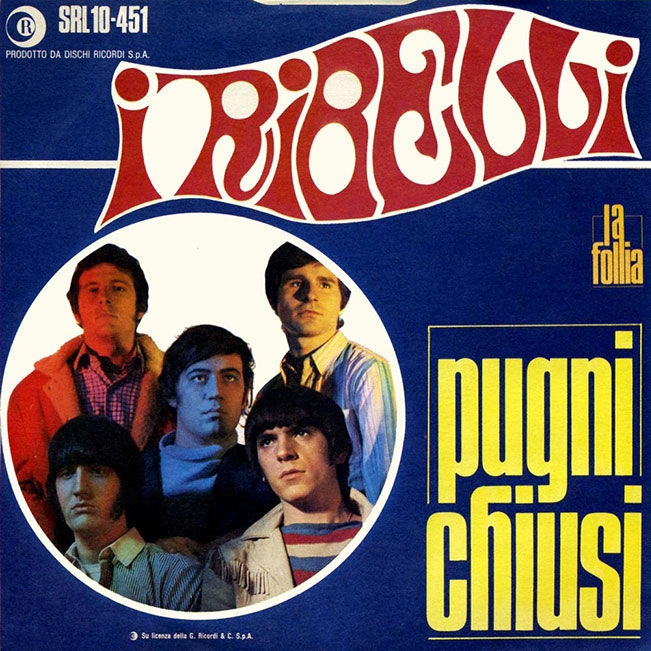Pugni chiusi

n the spring, in Mantua, I had recorded some ideas, inspired by the music I was listening to at the time on Radio Luxembourg. I had Demetrio listen to one of these in particular, accompanying my voice with the piano in the room reserved for Ricordi’s songwriters in Via Berchet. He advised me to change the riff because it didn’t stand out from the rest of the song. I remained glued to the piano until the right inspiration came, and once I had the new riff I called Stratos again. With a familiar gesture he brushed back his hair from his forehead, as if to listen better. He liked it, he was smiling at me! Luciano Beretta who was in the corridor next door, peeped in intrigued:
“What is this stuff? What are you doing here?”
Luciano, who had written Chi sarà la ragazza del Clan for us, was a refined, brilliant man; he could write incredible things, he was the poet of the Clan. I asked him if he would write the lyrics for my new song. On a sheet of paper he writes a series of numbers, creating the exact metric structure, and at the end he looks at me, comes towards me with a lit cigarette, in a mix of smoke and perfume, and slowly says: Chés chi lé un sucés. (This is a hit).
“Do you really think so, Luciano?”
“Of course I do!”
The following day he arrived at Ricordi with the lyrics of Pugni chiusi. Salvini and Ricky Gianco decided that, coupled with the Easybeats’ La follia, it would be the Ribelli’s first single published under the Ricordi label.
At the beginning of 1967 we went to the recording studio in via dei Cinquecento, a former local church theatre. We played Pugni chiusi with a Vox organ, a Fender electric bass, a Gibson Les Paul guitar, a Rogers drumkit and a King tenor saxophone. We recorded it on the new four-track Studer in less than an hour, Valter Patergnani was the sound engineer. After dinner we went back to the studio to record Demetrius’ voice and the choirs. I was really excited, and at the same time I was dying to hear him sing and find out what kind of imprint he would give to Pugni Chiusi. Demetrio was in front of a Neumann microphone, and for the first time the lead singer of the Rebelli. He placed the lyrics on the lectern, his ear pressed against the headphones. Ricky and us were on the other side of the glass, in the control room.
“Now I’ll send you the base, try to sing over it and tell me if you can hear the instruments properly”.
The first take was not bad, but he failed to spread out his breaths in the right places, and the words were broken at times.
Ricky said:
“I’ll try to record a version, so you can hear where I take breaths.”
Demetrius was with us in the control room, following the text, jotting down notes, listening carefully. Stratos went back to the microphone. This time it was good. My heart rushed all the way through to the last verse. I hugged him, we were all excited about his interpretation. From this moment onwards beat would never be the same.
Excerpt from: Dall’Aglio, Gianni – Batti un colpo – San Pietro in Cairano, Gabrielli, 2014 – pp. 121-122
